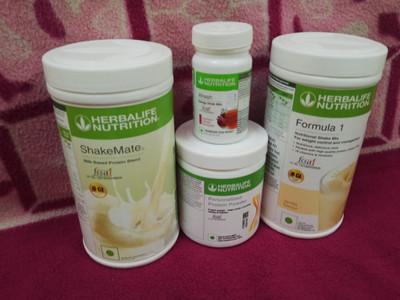
Share
AL-HAQQ Bombay Duck Whole (200 g, Pack of 1)
4
1,525 Ratings & 65 ReviewsSpecial price
₹255
₹599
57% off
@292.5/250g
Coupons for you
T&C
Available offers
T&C
T&C
T&C
Delivery
Check
Enter pincode
Delivery by7 Oct, Tuesday
?
if ordered before 5:59 AM
View Details
Quantity
- 200 g200 g
Please select a Quantity to proceed
Services
- Cash on Delivery available?
Seller
Description
Bombay Duck, scientifically known as Harpadon nehereus, is a type of lizardfish found in the coastal waters of the Indian Ocean, particularly along the western coast of India. It is widely consumed as a delicacy in Indian cuisine, especially in the coastal regions. While Bombay Duck is primarily appreciated for its unique taste and culinary uses, it also offers several potential health benefits. Here is a description of the health benefits associated with Bombay Duck: 1. Protein: Bombay Duck is a rich source of protein. Protein is essential for various functions in the body, including building and repairing tissues, supporting the immune system, and aiding in the production of enzymes and hormones. Consuming an adequate amount of protein is important for muscle growth, development, and overall health. 2. Omega-3 Fatty Acids: Bombay Duck contains omega-3 fatty acids, such as eicosapentaenoic acid (EPA) and docosahexaenoic acid (DHA). These fatty acids are known for their heart-healthy properties. They help reduce inflammation, lower triglyceride levels, and promote overall cardiovascular health. Omega-3 fatty acids are also beneficial for brain health, supporting cognitive function and potentially reducing the risk of certain neurological conditions. 3. Vitamin B12: Bombay Duck is a good source of vitamin B12, also known as cobalamin. Vitamin B12 is essential for the production of red blood cells, proper nerve function, and DNA synthesis. It plays a crucial role in maintaining healthy brain function and preventing anemia. 4. Minerals: Bombay Duck contains various minerals, including calcium, phosphorus, and iron. Calcium and phosphorus are essential for strong bones and teeth. Iron is crucial for the production of red blood cells, transportation of oxygen, and preventing iron-deficiency anemia. 5. Low in Fat: Bombay Duck is relatively low in fat, making it a favorable choice for individuals who are conscious of their fat intake or following a low-fat diet. Optin
Read More
Specifications
In The Box
| Pack of |
|
General
| Brand |
|
| Type |
|
| Ingredients |
|
| Quantity |
|
| Maximum Shelf Life |
|
| Skin Type |
|
| Cut Type |
|
| Boneless |
|
| Number of Pieces |
|
| Added Preservatives |
|
| Water Type |
|
| Container Type |
|
| Species Type |
|
| Model Name |
|
| Salted |
|
| Nutrient Content |
|
| Food Type |
|
| Usage Instructions |
|
| Storage Instructions |
|
| Additives |
|
| FSSAI Number |
|
| Net Quantity |
|
Legal Disclaimer
|
Ratings & Reviews
4
★
1,525 Ratings &
65 Reviews
- 5★
- 4★
- 3★
- 2★
- 1★
- 888
- 198
- 174
- 95
- 170
3
Fair
Sir the product is totally different instead dry fish i received the small baby shrimps.i was not at home today i saw its disgusting i have no time to exchange or return as my daughter is hospitalized m very nervous by seeing this product
READ MOREAsma Omer Labedi
Certified Buyer, Hyderabad
11 months ago
52
13
Report Abuse
5
Don't waste your money
Bad quality
READ MOREFlipkart Customer
Certified Buyer, Bikaner
Aug, 2024
48
33
Report Abuse
5
Simply awesome
Very good product 👌
READ MOREPriyanka Pramanik
Certified Buyer, Bareilly
Jun, 2024
38
34
Report Abuse
2
Bad quality
Not good 🤮🤮
Wastage money 😞
READ MOREWastage money 😞
Flipkart Customer
Certified Buyer, Bolpur
Aug, 2024
5
0
Report Abuse
5
Highly recommended
Excellent 👌
Very good item,, I'm extremely pleased with Flipkart,,,
READ MOREVery good item,, I'm extremely pleased with Flipkart,,,
Ratan Kumar Roy
Certified Buyer, Baneswar
Jun, 2024
8
7
Report Abuse
4
Delightful
good
READ MOREFlipkart Customer
Certified Buyer, Bathinda District
May, 2024
2
2
Report Abuse
5
Highly recommended
Very good
READ MOREBirsing Samad
Certified Buyer, Chhatral Ina
4 months ago
2
1
Report Abuse
5
Simply awesome
It tastes good. I roast it then I wash and cook.
However, today I found a small worm 🐛 going out of it.
READ MOREHowever, today I found a small worm 🐛 going out of it.
Flipkart Customer
Certified Buyer, Aligarh
27 days ago
1
0
Report Abuse
5
Brilliant
🌹💐💐💐💐💯🙏thank you so much...my cat loved it too much ..stay blessed for complete her food but she started cough(khansi)..is it salted ..or not in use as cat food
READ MOREUsha Bansal
Certified Buyer, Sirsa
4 months ago
1
0
Report Abuse
+
All 65 reviews
Questions and Answers
Q:Is it very salty fish
A:Little bit, You need to soak it before 30 min to 1 hours BEFORE COOK to reduce high salt content.
ALHAQQ
Flipkart Seller13
14
Report Abuse
Q:Is this varakkal or curry vekkal?
A:This Sardine Dry Fish, You Can Make Curry and varuval also.
ALHAQQ
Flipkart Seller8
10
Report Abuse
Q:Can I feed it to my aquarium monster fish?
A:Yes, but you search it yourself once.
ALHAQQ
Flipkart Seller6
9
Report Abuse
Q:How many pieces?
A:8 to 10 pieces
ALHAQQ
Flipkart Seller3
0
Report Abuse
Didn't get the right answer you were looking for
Safe and Secure Payments.Easy returns.100% Authentic products.
Back to top











